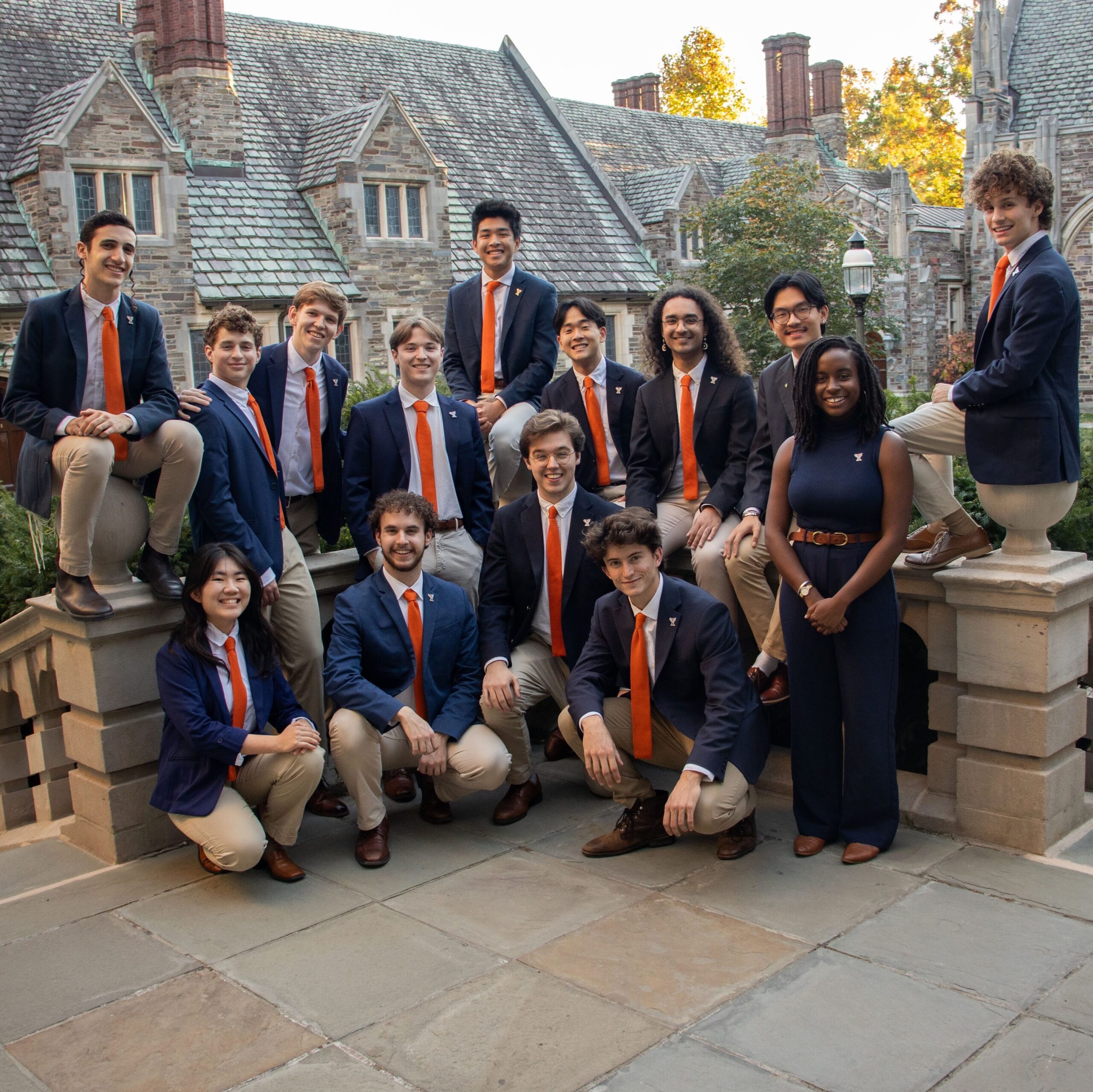Imagine standing in front of a big audience, heart racing, ready to blend your voice with others and hit the notes of an intricate a cappella arrangement. Every beat, every breath, is crucial. Every time I stand on stage or under an arch with my a cappella group, the Princeton Footnotes, I think of how similar singing and music feels to what I do in the lab. You might be thinking that singing in an a cappella group and doing research are worlds apart. However, these two passions have formed a bond in ways that I never believed possible. In fact, the creativity, collaboration, and discipline I have channeled in being a part of the Footnotes have made me a better researcher—and vice versa.
How I Found Myself in the Group
Joining a cappella wasn’t something I had planned before going to Princeton. I have always been a “shower singer,” but, without much prior professional experience, I never imagined myself performing alongside Princeton’s renowned a cappella groups. One night in my first-year fall semester, I walked across Blair Arch and heard groups performing. I stopped—struck by their camaraderie, energy, and musicality, I thought to myself, Why not?
The audience process was intense but exhilarating. When I was bid by the Footnotes, I felt a rush of excitement and nervousness. A cappella, something seemingly unrelated to my Engineering degree, would shape a lot of my Princeton experience that is to come—and that is scary, but it influenced everything else I did at Princeton in surprising and wonderful ways.
Music as a Creative Exercise
Singing acappella is not just about singing the right notes or keeping the tempo—it’s about the variations (dynamics, I should say), the little improvisation, the moment your voice blends with others’, creating something new, something beautiful. Each rehearsal and performance serves as a creative exercise. We tweak around with musical arrangements and fiddle with harmonies and rhythm until we reach that sweet spot. The final result is often far away from where we started, yet built on micro adjustments along the way. The Footnotes taught me that every voice counts, every small detail matters.
This creative exercise is strikingly relevant and enriching to my time in the lab. In my summer project at a bioengineering lab, I had to spend weeks troubleshooting my PCRs to find something that would produce the cleanest results. This was made a lot more manageable because I’ve learnt to pay close attention to details throughout my time in the Footnotes. Just like how one off-key note can disrupt an arrangement or one tiny crescendo can elevate a piece, I learned to thoroughly track each reagent and conditions in my experiments. These kinds of reminders that a cappella have brought to my scientific journey makes research feel like crafting a performance and thus so much more insightful and fun.
Performing as a Researcher
Beyond the experimentation process, a cappella has elevated my scientific communication skills. Performing with a group taught me how to read and connect to an audience. We learn to sing with intention every time and not just go on autopilot after singing a piece multiple times. This can mean smiling with your eyes or inviting the audience to clap with the song. It always has to be two-way—the group delivers music to the audience, and in exchange we gain the energy and excitement from the listeners.
When I found myself having to present my summer research project with peers and professors, I think back to how I have connected and engaged with the audience in an a cappella setting. Rather than ratting off data and fundings, I try to tell a story behind my research and bring people into my world. I adjust my focus of my presentation based on reactions and questions in the room, because, just like performing music, communicating science is a two-way task.
Pursuing Unorthodox Interests
Balancing a cappella with my academics and research hasn’t always been easy. Sometimes, stuck at late night rehearsals, I ask myself if it’s even worth it. But in retrospect, it’s something I wouldn’t trade for the world. The Footnotes have energized my experience as a student and researcher at Princeton. Sometimes, overwhelmed with my STEM PSETs and all the numbers, data, and protocols, I step into the Footnotes rehearsal room (the Shoe!) finding a much-needed mental reset. With music, I am able to find a creative outlet for my emotions, which in turn fuels a grounding methodological solace in my research.
For anyone at Princeton thinking of pursuing something seemingly “unrelated” to their academic path, whether it be writing, dancing, sports, music, or anything else, I’d say try it out. Don’t be afraid to put yourself out there—stop at an event that interests you, attend an information session, or talk to your classmates about their campus involvements. You might be surprised by how these unconventional interests enrich your academic path at Princeton, like how a cappella enriched mine.
— Nathan Nguyen, Engineering Correspondent


